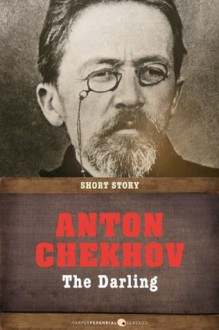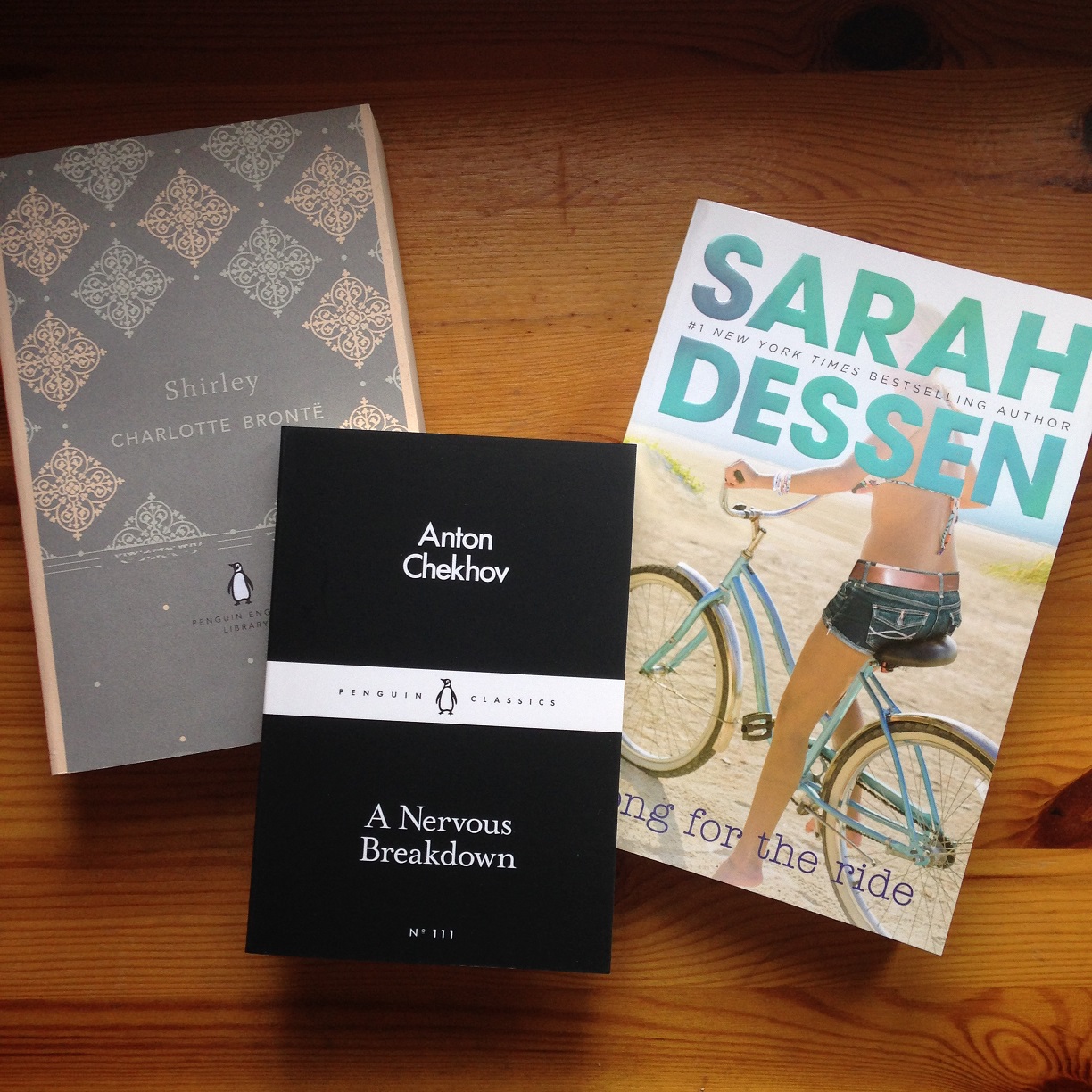
Reading this play I got the impression that it was basically about a group of people sitting in a house talking about philosophy and pining for the good old days. As I have mentioned before, reading plays, especially if I have not seen them performed, can be a difficult task at best, and sometimes I have to read some two of three times to be able to follow them (though some of them I need to read only once – however Chekov does not fall into that category). Anyway, when I read the synopsis and theme on Wikipedia, I discovered that it was about a bunch of people in a house talking philosophy and pining about the good old days – oh and three of those people where sisters, which is why it is call The Three Sister (eh duh).
Anyway, I want to focus on three quotes from the play and write about what those quotes mean to me.
ANDREI: And you can sit in some huge restaurant in Moscow without knowing anyone, and no one knowing you; yet somehow you don't feel you don't belong there. Whereas here you know everybody, and everybody knows you, and yet you don't feel you belong here; you feel you don't belong at all. You're lonely and feel like a stranger.
The sisters actually grew up in Moscow and moved out to the country when they were young and through out the play they are pining for a return to Moscow (which never happens). I can very much relate to them because I personally understand the quote above. I grew up in Adelaide which, with a population of around 1.2 million people, is technically a city, but even then it has the attitude of a small country town. Basically you cannot wonder around Adelaide without running into people that you know.
It is okay if you are a friendly, personable person who has not made a huge amount of enemies, but having lived a rather wild life, that was not the case for me. As such in my last few years in Adelaide I found myself forever ducking and weaving, trying to avoid people that I did not want to run into. However, it is also like what Andrei says about – living in Adelaide was like sitting in a restaurant where you know everybody, and everybody knows you, and you feel as if you do not belong.
Then I moved to Melbourne. I may not have the best job in Melbourne, but at least it is not Adelaide. In a way, it is better to have a sucky job (at least in my opinion) and live in Melbourne, than to have a sucky job and live in Adelaide. Once again, as Andrei says, living in Melbourne is like sitting in a restaurant where you know nobody and nobody knows you, yet you feel as if you belong. Further, I am not ducking and weaving, hoping that I will not run into somebody that I don't want to run into. Mind you, getting the Adelaide mindset out of my mind still will take time, and I have made a few blunders while I am hear as well, but I still feel as if I can walk down the road with my head held high.
TUTZNBACH: All right then. After we're dead, people will fly around in balloons, the cut of their coats will be different, the sixth sense will be discovered and possibly even developed and used for all I know. But, I believe life itself will remain the same; it will still be difficult and full of mystery and full of happiness. And in a thousand years' time people will still be sighing and complaining “how hard this business of living is!” And they'll still be scared of death and unwilling to die just as they are now.
Here they are talking about the future and what the future may bring, and their discussion seems to be very insightful, at least what Tutznbach says. I look at the world around me and say that what Chekov said through Tutzenbach is right. Indeed technology has made things easier, and the cultural attitudes may have changed, but people still find life difficult and happiness fleeting. However, the interesting thing about happiness is that economists try to measure it, and they believe that happiness comes through owning stuff.
However that is not the case. I have lived in a big house, owned my dream car, and had stuff, but it did not make me happy. I even had a bucket load of friends, yet even with all of these friends I still felt very much alone. It is funny because now I don't own a car, live in a room in a share house (with some pretty good housemates), and don't really own lots of stuff, and while I have friends, I can't say it is the same as it was before, yet I don't feel alone and I can say that I am happy. I don't know what this move to Melbourne has done for me, because I can even walk into a sucky job with a smile on my face, and I am still trying to make my mind up whether I want to shoot for a higher paying, more intellectually stimulating job, or simply use this job as a way to have a steady income while saving my intellectual abilities for my hobbies outside of work.
I used to know a thing or two twenty-five years ago, but now I don't remember anything. Not a thing! Perhaps I'm not a man at all, but I just imagine that I've got hands and feet and a head. Perhaps I don't exist at all, and I only imagine that I'm walking around and eating and sleeping.
This seems to be the most existantialist statement that I have read so far in one of Chekov's plays. It seems as if the speaker of these words has grown old and lost touch with his identity. In a way it seems to be reflective of our society, as we discard the traditions of the past and move into a post-modern present where traditions are defined by individual preference. It seems as if we, as a people, have lost our identity, and as if our concept of culture is really only imaginary.
In fact the whole idea of our culture seems to be imaginary. Music and art seem to only exist for one purpose, and that is for making money. Art these days seems to evolve around advertising and marketing, as does music. Films are produced not on literary merit but on whether the return will outweigh the production costs. Our society, in a sense, is based entirely around consumerism, and any culture that seems to exist is not culture at all, but a farce. Even sport, with athletes earning millions of dollars, have seemed to have lost its cultural significance to simply only exist as a means to keep the population distracted.


 Log in with Facebook
Log in with Facebook 








